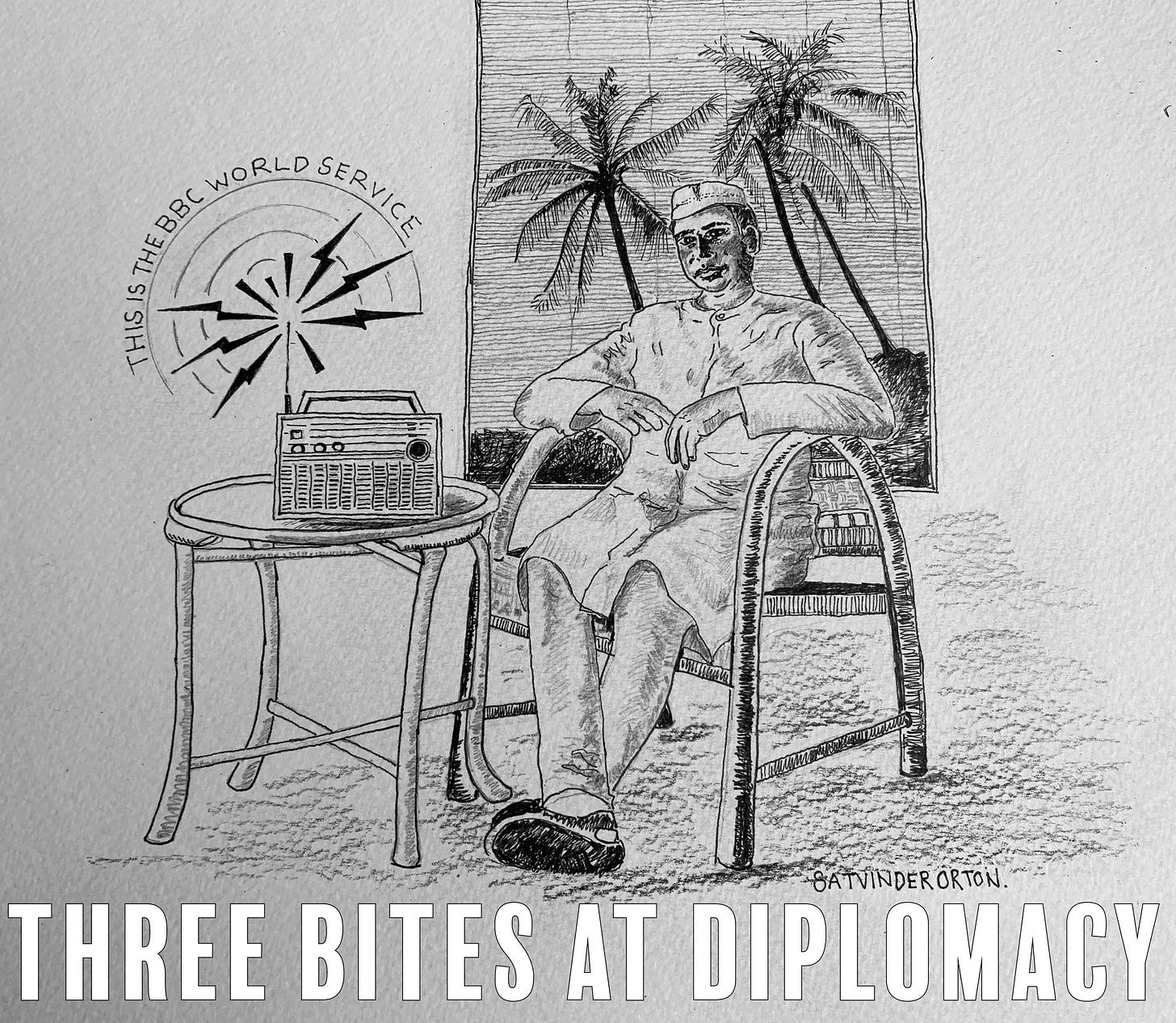Most countries have one avenue for developing their relationship with the government and people of another state: Their Foreign Service and its network of legations, embassies, high commissions and consulates. The UK has three. From 1997 to 2020, arguably it had four.
I say this without pride. If anything, I reflect on this with sadness. For whilst I have seen these parallel streams working at their best, I have witnessed their progressive undervaluing and withered funding.
So what are they? The first is the traditional Foreign and Commonwealth Office: A government department with embassies or, in Commonwealth countries, high commissions.
The second is the British Council, established in 1934 to promote English language learning and UK culture, currently active in over 100 countries and, according to their website, reaching 600 million people in 2022-23.
The third is the BBC World Service, launched in 1932, currently broadcasting in more than 40 languages and, in 2024, reaching an average audience of 450 million people a week.
The fourth, now subsumed within the first, was the Department of International Development, described in 2010 as ‘an international development leader in times of crisis’ and pretty universally recognised as punching well above its weight.
What is so remarkable about this breadth of reach around the world (what I think, but I’m willing to be proven wrong, is unique about it) is that these agencies are far from singing from the same song sheet. There is/was a healthy tension, a powerful, some might say bloody minded, independence of attitude, view and approach which did not go unobserved or undervalued by those impacted by them. Many counties have government funded international broadcasting networks, but all are clearly related to the policies, priorities and propaganda of their respective paymasters. The USA for example, has the Voice of America which, like the BBC, broadcasts in around 40 languages. But there is a reason why their reach is around half that of the World Service.
Two examples of this remarkable plurality:
The first is of a Kenyan, who had lived under British rule, survived the brutal state response during the Mau Mau Emergency and was a passionate patriot of independent Kenya. I met him around 1980 and he never missed an opportunity to point out just how awful he thought colonial rule had been and how much he still detested the British. Yet every night at 6pm he would tune in to the BBC World Service News, trusting it far more, even in it’s reporting about events in his beloved Kenya, than the state’s own national broadcaster or newspapers.
The second, in another part of Africa, was a conversation over a cup of tea with a senior civil servant who fondly recalled on more than one occasion as a young student demonstrating against British Imperialism outside the High Commission in the morning then, on his way back to university, calling in to the British Council to renew his library books. (Indeed, there’s an argument for saying Rowan Atkinson as Mr Bean has, via the British Council’s video library, done more for the status of Britian in foreign eyes with silent stupidity than all the words of generations of diplomats and politicians.)
The UK’s declining influence in the world has been accelerated by a series of short-sighted and ill-informed decisions to reduce funding and activities in all areas of this unique global network. Relocation of British Council offices to within embassy compounds for example, justified on security as well as cost grounds, made access to English books, British films and UK cultural study programmes much less easy and suddenly politicised in a way popping into the British Council never had been before. The progressive underfunding of the World Service has reduced coverage geographically and intellectually. The absorption of the Department for International Development into the Foreign, Commonwealth and Development Office has facilitated the already shrinking foreign aid budget being diverted to subsidise activities within the UK.
Is it already too late to turn back this seemingly relentless direction of travel towards a monotonal parroting of prevailing UK Government policy? I pray not, but I fear so. Because this has not just been about paucity of budgets but a poverty of imagination.






Thanks for the restack! Just something I was thinking about. I've worked for all of them except the World Service at one time or another and was reflecting on changes.
Why are you thinking about this at this moment? Has some event or incident triggered a comment on this?